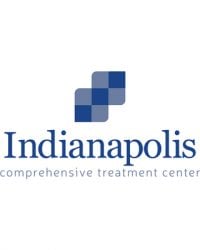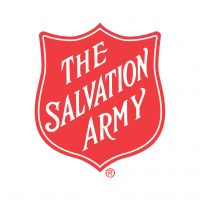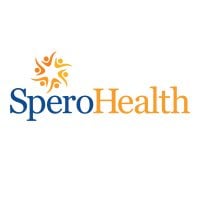Broad Ripple Counseling Center
Drug Rehab Center in Indianapolis, Indiana
- Mental Health
Broad Ripple Counseling Center is an Indianapolis-based addiction treatment facility offering a variety of outpatient services and detoxification options, as well as insurance acceptance and case management.
About Broad Ripple Counseling Center in Indiana
Broad Ripple Counseling Center (BRCC) is a leading provider of mental healthcare services in Indianapolis, Indiana. Located in the vibrant Broad Ripple village, BRCC offers a wide range of therapy services to both children and adults. Their team of highly-trained, multi-disciplinary counselors and therapists specialize in a range of psychological and behavioral health issues. With comprehensive individual, group, and family sessions, BRCC serves clients from diverse backgrounds, lifestyles, and belief systems.
At BRCC, recovering from addiction and substance abuse is made easier with a comprehensive selection of services. From evidence-based treatment information to mindfulness sessions, clients learn ways to cope with the challenges of addiction. BRCC also offers services such as relapse prevention planning, substance abuse evaluations, and court-ordered services. All services are provided under the direction of an Indiana Licensed Clinical Addiction Counselor and are accredited by the Indiana Department of Mental Health and Addiction Services. By leveraging the expertise of their professional staff, BRCC stands ready to help clients facing the difficult challenges of addiction and substance abuse.
Genders
Ages
Modality
Additional
Conditions and Issues Treated
Levels of Care Offered
This center offers a variety of custom treatment tailored to individual recovery. Currently available are Outpatient, with additional therapies available as listed below.
Outpatient treatment is considered the lower intensity level of addiction treatment. It’s ideal for early phase addiction or lower intensity addictions. It may include weekly sessions instead of daily. It may include weekly sessions instead of daily. Peer group support, 12-step programs, and individual counseling may still be involved but at a lesser frequency than an intensive outpatient program. It is a good choice for someone who doesn’t need to go through a medically supervised detox and who has a supportive home environment. It requires motivation and dedication to commit to the program without constant monitoring.
Therapies & Programs
Individual therapy involves one-on-one sessions between the patient and therapist. It provides patients with a safe environment to openly discuss personal and sensitive issues with the therapist. They find the therapist as someone they can trust. Individual therapy aims to identify the core issues that would have led the patient to substance abuse and address them effectively. The therapist can develop patient-specific customized solutions through individual therapy, which aids speedier recovery.
Couples therapy works with clients and significant others in a professional capacity to improve relationship dynamics. This can be helpful for addicts who are trying to marry the idea of recovery into their work, family, social lives – any aspect that has to do with relationships.
Through counseling sessions, addicts will have an opportunity to talk about their addiction with professional partners. These partners can offer feedback and advice on how to get sober while keeping healthy relationships intact. A good couples therapist will help addicts understand their part in an unhealthy relationship dynamic or find ways to deal with anger or resentment from significant others outside of the home.
Family therapy is a group problem-solving that aims to improve communication and relationships between the addict, their family, and sometimes friends. The main goal of family therapy for drug addiction is to create an environment where communication can occur without judgment, hostility, or blame. The therapist is with the family as they learn to communicate differently, especially with the addict when s/he is using. The family can learn to reduce their enabling behavior or rally together and support each other during tough times.
An addict’s family can play a vital part in helping them to avoid relapse because they can spot the warning signs and help them get back on track before it becomes too much of a problem. Family therapy is one of the most effective ways to help addicts stay on the path to long-term sobriety. When a drug addict decides that they want to try and get sober, it takes the support of every person they love to succeed. It can be incredibly difficult for loved ones to watch an addict go through the pain and suffering of withdrawal, but by being there with them and supporting them, they can help to make sure that the addiction never returns.
Groups typically involve meetings with other recovering addicts who can relate to one another’s experiences. They might meet in person or online and typically focus on the process of staying sober rather than overcoming a specific addiction.
In these groups managed by Broad Ripple Counseling Center, addicts can build a sense of community and develop strong emotional connections with others who understand what they are going through. These beneficial relationships can help addicts overcome their cravings and prevent relapse at any point during the recovery process.
In general, trauma therapy is a clinical process that helps individuals deal with mental stress often caused by traumatic events. The therapist helps the person identify, understand, and work through the problem. This is done with the help of talking about it in group or one-on-one counseling sessions. Therapists use relaxation, role-playing, art, and music to help the person open up about what is bothering them.
There are many different types of trauma therapists, such as psychiatric nurses and counselors. Not everyone is a good candidate for this type of therapy; it is generally reserved for people who have recently experienced a traumatic event and struggle to get over it. It is often done for children, teenage victims of sexual assault, and war veterans.
There is hope for people who are addicted to drugs and alcohol. Cognitive Behavioral Therapy (CBT) is the solution. CBT focuses on the underlying thoughts and behaviors that caused the addiction problem in the first place and may cause a relapse. This type of psychotherapy addresses negative feelings common in substance abuse disorders. It helps to change them by restructuring thought patterns. It’s about removing negative thoughts and providing long-term benefits while promoting self-awareness, self-control, and healthy ways to respond to negative thoughts. These sessions can be done by themselves or as part of combination therapy.
Payment Options Accepted
For specific insurance or payment methods please contact us.
Is your insurance accepted?
Ask an expert, call (888) 674-0062
Additional Details
Specifics, location, and helpful extra information.
Indianapolis, Indiana 46220 Phone Number(317) 251-9777 Meta DetailsUpdated November 25, 2023
Staff Verified
Broad Ripple Counseling Center Patient Reviews
There are no reviews yet. Be the first one to write one.
Indianapolis, Indiana Addiction Information
The state of Indiana ranks 14th in the nation for drug abuse, but 17th for drug overdoses. The state has many high-quality rehabilitation centers, but reports show that there are about 20 deaths per 100,000 people. This is due to its location making it a drug trafficking haven, where many drugs are further distributed into the country.
The drug addiction problem in Indianapolis, Indiana, is quite severe. There were over 1,600 overdose deaths in Indianapolis between 1999 and 2016. This means that, on average, there were about 100 overdose deaths per year in Indianapolis during that period. Rehab centers in Indianapolis, Indiana, offer a variety of programs, including inpatient and outpatient programs, 12-step programs, and faith-based programs.
Treatment in Nearby Cities
- Vincennes, IN (110.7 mi.)
- Frankfort, IN (34.4 mi.)
- Mount Vernon, IN ( mi.)
- Richmond, IN (66.8 mi.)
- East Chicago, IN (140.4 mi.)
Centers near Broad Ripple Counseling Center




The facility name, logo and brand are the property and registered trademarks of Broad Ripple Counseling Center, and are being used for identification and informational purposes only. Use of these names, logos and brands shall not imply endorsement. RehabNow.org is not affiliated with or sponsored by Broad Ripple Counseling Center.



